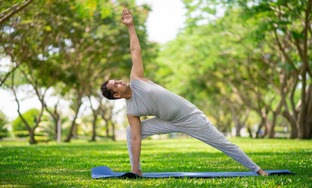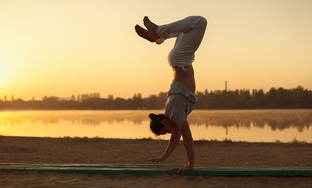
A recent survey shows that a whopping 24% Indians are struggling with stress in 2023. Another poll taken this year indicates that ‘negative, unhappy emotions, like stress and loneliness’, are soaring in India—with 35% admitting to going through them, compared to 33% in 2022.
Stress, unfortunately, is a common phenomenon, which, sometimes, can be triggered even by everyday, minor inconveniences; or can escalate out of control by more intense challenges. According to a report in Harvard Medical School, “No matter what the cause, stress floods your body with hormones. Your heart pounds, your breathing speeds up, and your muscles tense.”
This is the body’s fight-or-flight response—an automatic physiological reaction driven by the nervous system to situations we perceive as threatening or dangerous.
Yes, we can almost never control the sources of stress in our lives, but we can control how our body reacts to them—or, better still, doesn’t at all.
This is the ‘relaxation response’, the antithesis of stress response.
What is relaxation response:
As the Harvard report explains, this is a state of ‘profound rest’. With regular practice, you create a ‘well of calm to dip into, as the need arises’. Which, essentially, means that you train your mind and body to stay un-panicked, even in situations you’d otherwise, probably, lose sleep over.
It helps you physically, too. As per an article in Massachusetts General Hospital, the relaxation response enables your body to release chemicals that slow down your breathing and heart rate. This brings healthy blood back to important organs, especially the brain. It also relaxes muscles and improves mood, among more.
There are numerous techniques that can embed this response in your body, and counter the toxic effects of stress.
Some relaxation techniques that can help:
- Breath Focus: Mindfully take long, slow, deep breaths—also known as abdominal, belly, or diaphragmatic breathing. Simultaneously, also steer your mind away from any distracting, disturbing thoughts.
- Guided Imagery or Visualization: Mentally picture positive places, objects, experiences that soothe you. We suggest including as many ‘senses’ as you can. For instance, if you imagine relaxing at the ocean, think about the smell of salt water, the sound of crashing waves, and the warmth of the sun on your body.
- Progressive Muscle Relaxation. You first slowly tense the different muscle groups in your body, then release this tension, to relax all. According to Mayo Clinic, this can help you discern your bodily sensations better.
- Autogenic Relaxation: This uses both visual imagery and body awareness. You say words or describe scenes to yourself that make you happy and calm you down. Then you focus on your physical sensations like breathing, body parts etc, while repeating affirmations.
- Biofeedback-Assisted Relaxation: An electronic device, such as a sensor or an electrical pad, is connected to your body. Based on the info it provides, you incorporate tweaks. For example, it’ll track your heart rate, blood pressure, or muscle tension changes in response to you feeling stressed or relaxed, as per the National Center for Complementary and Integrative Health. This can help you discover a lot about how your body reacts to certain situations.
Tips for beginners:
- As a precaution, particularly if you have a mental, emotional or physical health condition, do consult your doctor beforehand.
- Different techniques work for different people. You may have to try out a few, before you can zero-in on ours. It’s advised to begin with a trained expert, for safe, effective results.
- Be consistent. The relaxation response works best when practised 1-2 times a day, for 15-20 minutes at a time, according to Massachusetts General Hospital.
- Do integrate mindful, healthy living, and some form of physical activity in your life, to be even better equipped to combat stress.


















One Response
Eat healthy, exercise, get plenty of sleep, and give yourself a break if you feel stressed out. Take care of your body. Take deep breaths, stretch, or meditate. Try to eat healthy, well-balanced meals.